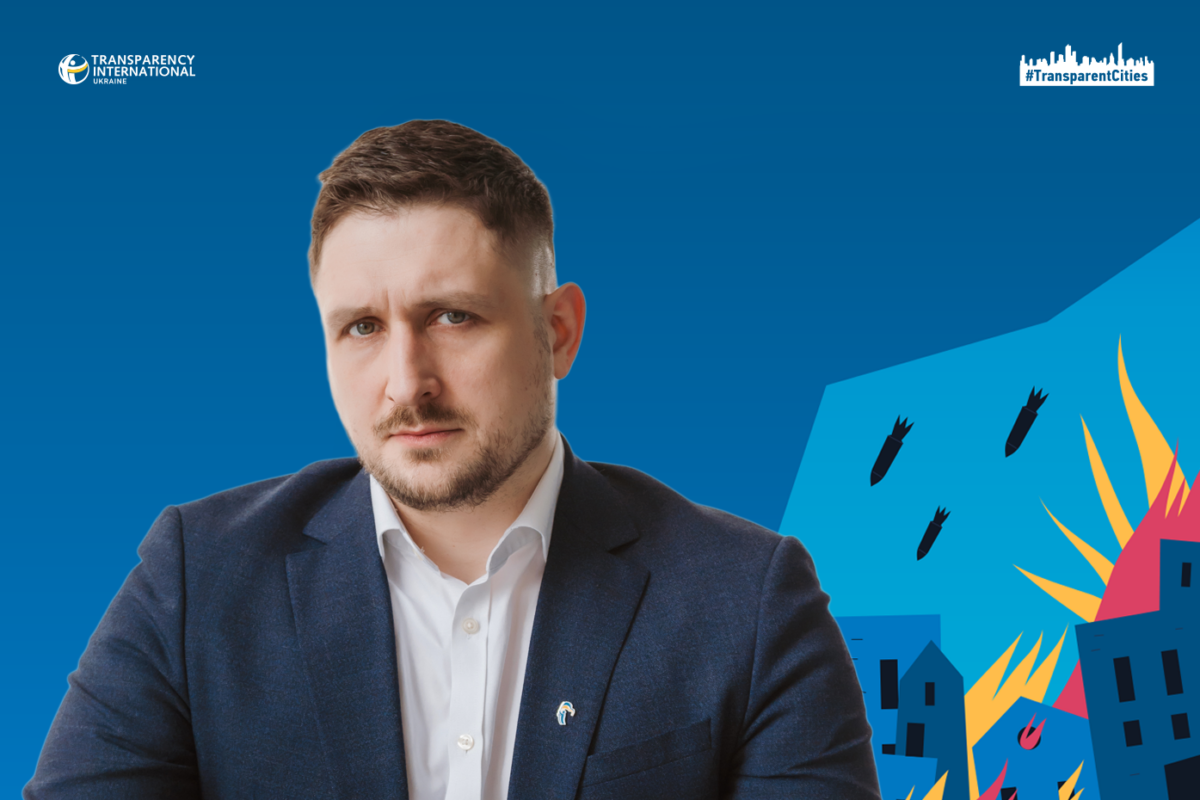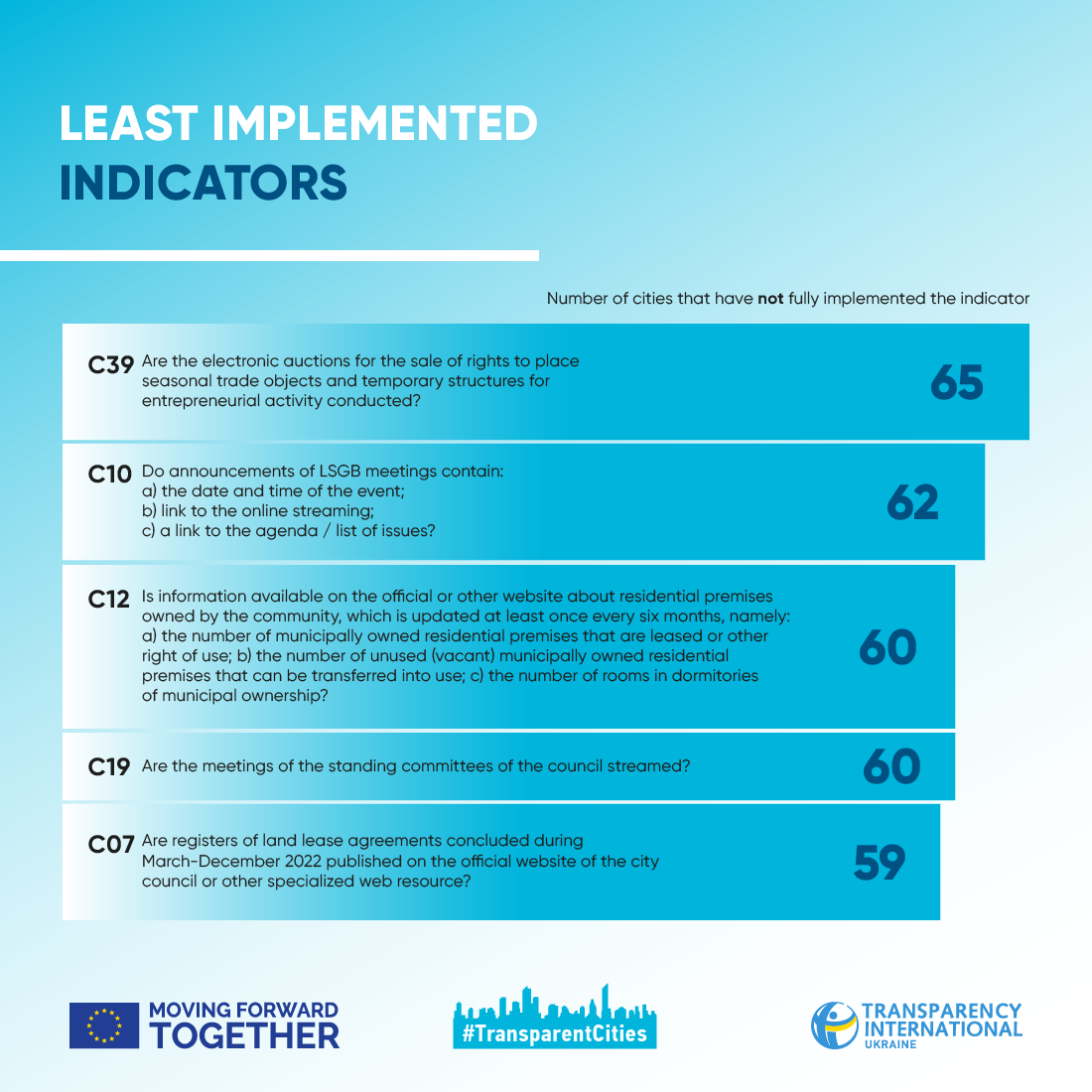

The full-scale war started by Russia has shown that decentralization in Ukraine works. It was the powers and ability of local authorities to make rapid, essential decisions independently that helped many cities withstand the first attacks and organize the lives of their citizens one way or another.
We saw such resilience both in the examples of cities that came under a direct hit from Russia, and those that, it would seem, were in the deep rear. Russian authorities demonstrated that not a single city is really safe: any place in Ukraine is a target of potential Russian attacks.
It was security issues that became a priority for all Ukrainian municipalities. And it was the need for security measures that primarily influenced the fact that cities began to conceal information about their work more and more. But while such actions were justified at first and perceived as necessary for security, this argument was growing weaker over time.
What is more, the war not only affected the work of local self-government, but also highlighted previously existing problems, including ones related to transparency. And we were witnessing a global paradox: while Ukrainians increasingly showed a desire to engage in decision-making in the community, the authorities, which focused all their efforts on the protection of their citizens last year, distanced themselves more and more from their residents with each month of the war. Thus, when the full-scale war started, the transparency of local authorities suffered a noticeable setback, though Ukraine achieved clear success with it before.
What does this mean for millions of brave hearts? How do we fix this situation? Let’s try to figure it out.
How transparently do Ukrainian city councils work during the war?
The new research of the Transparent Cities program by Transparency International Ukraine found that only 3 cities out of 70 could be identified as “transparent,” and 10 as “partially transparent.”
Previously, the organization compiled Transparency and Accountability Rankings of Ukrainian Cities, which had Ukrainian cities showing quite decent results before the full-scale war. Over 5 years, the average level of transparency in cities increased by 62.2%. Significant progress was also achieved in the openness of data — Ukraine was considered one of the leading countries in the world based on this indicator. In the Transparency Ranking, Ukrainian cities battled for the top spot, and healthy competition stimulated development and peer exchange to improve people’s lives.
But this year, Transparent Cities conducted a study adapted to the conditions of martial law with new indicators. The average percentage of compliance is 37.5%, while the requirements of Ukrainian legislation were fulfilled by 47.8%. That is, more than half of the legal demands were ignored by the local authorities under the pretext of the war.
The graphics below show which indicators were followed by the local councils, and which ones were disregarded.


Thus, the issue of transparency was put on the back burner at the beginning of the full-scale war. Undoubtedly, during the full-scale war, the Ukrainian authorities do not ensure the pre-war level of transparency of their work. This is influenced by a number of factors related to wartime restrictions. Admittedly, for the past 14 months, local governments have been working under unprecedented round-the-clock pressure. The safety of citizens has obviously become the main task, which is far greater than the demands of transparency.
Protecting people is not something that can be postponed or delayed. These are tasks that require a lot of involvement and resources, and such conditions are not productive for comprehensive and systemic work to increase the level of transparency. Therefore, due to the war and constant Russian terror, we cannot talk about the gradual development of the local self-government system and work on non-priority tasks.
At the same time, Ukrainian city councils should stay on the path towards transparency as much as possible. This is what their voters and international partners expect, considering their interest in the transparency of Ukrainian authorities has only increased following the invasion.
What should we strive for?
On June 27, 2022, Ukraine was officially designated as a candidate to join the EU. During the war, it is a profound signal for the entire country, which Ukrainians value very much. We understand that, in addition to the status, this entails multiple requirements. And among them is the continuation of the initiated reforms, the establishment of the principles of good local governance and the fight against corruption.
In order to get closer to EU membership, Ukraine should not just say it strives for European standards, but also take real action.
An important prerequisite for cooperation with international partners during reconstruction is, as expected, transparency and accountability of the authorities. Moreover, the demand for transparency and accountability during the country’s recovery only becomes more critical, since it directly affects investments and the implementation of joint reconstruction projects. And, like potential investors, local residents are also interested in understanding the procedure for restoring certain objects in their cities.
Thus, when the post-war reconstruction starts, transparency and accountability will become key factors in cooperation agreements. The new study of city councils’ work during the war, “Between Security and Transparency,” contains the analysis of the necessary steps that cities need to take to reach this goal.
At a minimum, it includes:
– adapting their work to the challenges of war — creating and updating services that will help the population;
– publishing open data as much as possible;
– accounting and distributing humanitarian aid transparently.
How can Ukrainian cities become stronger even before the victory?
Today, our cities need support. And knowing how ready citizens are to get involved in the recovery, we also need help from other enthusiasts and experts from across the world.
While real warfare happening at the frontline, officials’ offices are fighting for resources, which are desperately needed. How quickly Ukraine will overcome the Russian onslaught also depends on coordinated work in the rear. This includes receiving aid from abroad. We have to destroy the enemy together, or they will come back stronger later.
By supporting Ukrainian communities, cities abroad make their direct contribution to the future peace, victory of Ukraine and European stability. Establishing contacts and mutual understanding between countries and communities will also support Ukraine’s path to the European Union, which also remains one of the greatest aspirations of all Ukrainians today.
During the invasion, Ukrainian cities already had time to learn more about partnerships and find sources of basic aid. But they still need financial support, various equipment, medication. Ukraine also critically needs peer exchange in culture, education, and science, as well as involving foreign specialists in reconstruction.
How can you help Ukrainian cities?
- Register your community on the Cities4Cities online platform. It combines the requests and needs of Ukrainian cities with the experience, capabilities, and knowledge of European cities. It’s completely free, and most importantly, it’s open and transparent.
- Sign a partnership or twinning agreement with Ukrainian cities directly. To do this, find out about potential sectors of cooperation and develop a draft agreement.
- Donate to the UNITED24 platform — it is one of the main channels to raise funds for Ukraine.
- Support Ukraine with humanitarian aid through the official portal. The website outlines the needs of the regions, a dashboard of assistance already provided, and instructions.
- Contact the Transparent Cities program, which can help you deliver the necessary aid or communicate with Ukrainian municipalities directly.
Ukrainians will persevere and overcome. To help these brave people become part of the big European family, you can start with a partnership between cities right now! Here, in Ukraine, we are ready for cooperation, and with the help of our international friends, we can overcome the challenges of every Ukrainian city.







